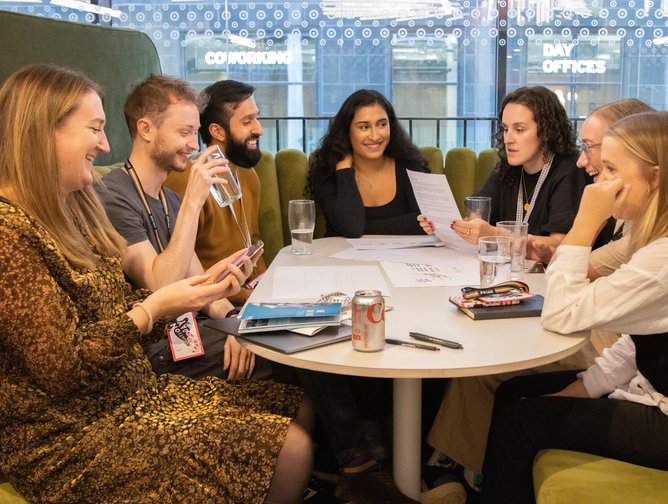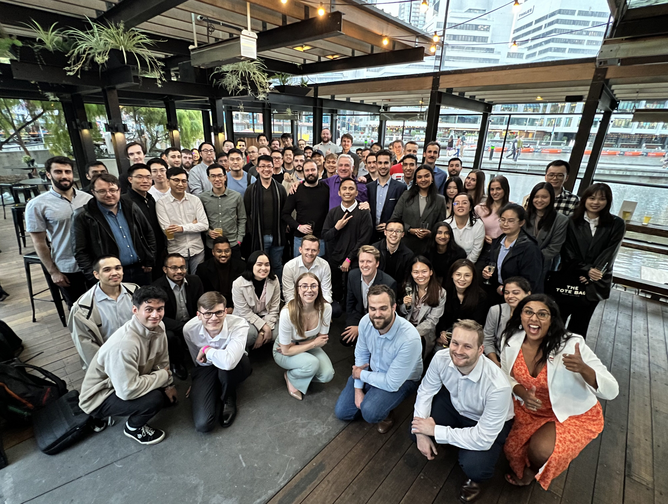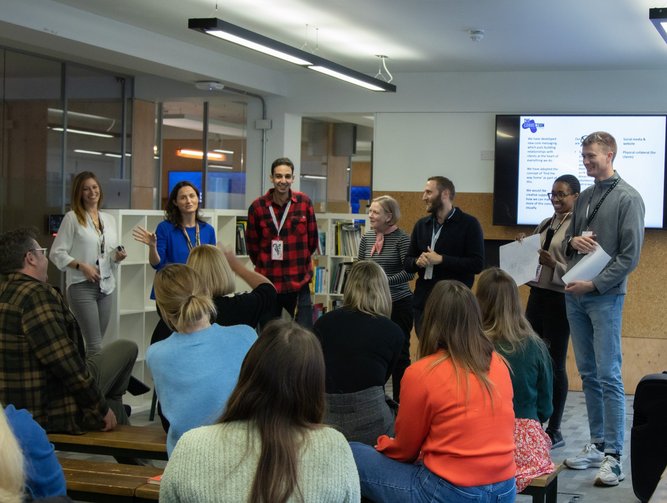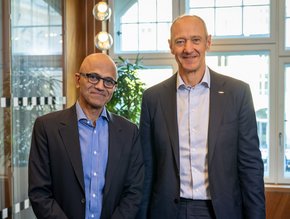The endless benefits of putting your people first

It has taken a global pandemic and an ongoing cost-of-living crisis for countless companies to finally realise the importance of looking after their people.
COVID-19, in conjunction with the stay-at-home orders that followed, provided many employees with the impetus to make long-overdue decisions about the direction of their careers, triggering a trend which became widely known as the Great Resignation.
Feelings of discontent were then amplified as spiralling inflation and general economic uncertainty began to eat into pay packets, prompting workers to ask whether it was time to seek pastures new.
All this means senior executives, managers and HR teams face a monumental challenge to keep their people happy which, according to numerous studies, is a key ingredient when it comes to boosting productivity and adding to the bottom line.

Back in 2019, researchers from the University of Oxford studied BT call centre workers over a period of six months to gauge the impact of happiness on productivity – and their findings were pretty convincing. Happy workers not only made more calls, but also achieved 13% more sales than their unhappy colleagues, without putting in any extra hours.
Similarly, the University of Warwick’s Department of Economics concluded last year that happiness made people around 12% more productive.
The logical solution for businesses worried about retaining their staff is to implement a culture where people take priority over profit.
The case for a people-first culture
C-suite employment trends over the past few years suggest companies are catching on to the importance of implementing a people-first culture.
Chief People Officer is, without doubt, one of the fastest-growing leadership roles in the world, with giants like Apple, Zebra Technologies and Papa Johns among those to announce hires in recent months.
In fact, LinkedIn’s Jobs on the Rise 2023 lists for the UK and US – which ranked roles based on growing demand over the previous five years – saw CPO place 10th and 15th place respectively.

Sheila Flavell, COO at FDM Group, a global leader in the professional services sector with a focus on IT, believes putting people over profit is essential in helping businesses to grow and prosper.
“There is a continued lack of diversity and digital skills within the technology industry,” Flavell says. “Putting people first throughout business operations, from hiring and training to professional development, is key to solving these issues.
“Today, employees are looking for more than just a job; they are looking for a workplace
they can belong to and grow within. Implementing a people-first culture helps them feel more valued and more satisfied with their jobs which, in turn, means more creativity and productivity.”
FDM is far from being alone in establishing a culture where employees are provided with the means to thrive. MullenLowe’s UK arm continues to design policies around people, offering a flexible working week with core hours of 10am to 4pm and inviting staff to work from home on Mondays and Fridays. Shared parental leave and sabbaticals to reward long tenure are just a couple of other benefits.
“As ever, the important thing is to live by these principles – not just have them written down,” adds Claire Hollands, who became CEO of MullenLowe UK earlier this year. “Whether you want to make it to the gym or navigate drop-off and pick-up, it’s designed to work around everyday life.
“Our people are our differentiator, which means a people-first culture is paramount to success.”

Keeping teams motivated
While the Great Resignation is seemingly coming to an end, with the number of people leaving their jobs starting to resemble pre-pandemic levels, quiet quitting is very much alive and kicking in various industries.
IT professionals, for example, are 1.4 times more likely to disengage and ‘quiet quit’ their jobs compared to other knowledge workers, according to the latest research from Ivanti.
Almost three-quarters (73%) of workers said they were facing an increasing workload, while 23% are experiencing a loss of connection with their colleagues.
Flavell’s personal take is that leaders must “collaborate, communicate, connect and care” for their people in order to boost motivation levels.
“Putting people first ensures that you always have your finger on the pulse and can create an inclusive, productive workplace that people enjoy working in,” she adds.
“Any senior C-suite role must be an active participant in conversations around wider business operations. Recognising that it’s the people that make a business’ strategies successful is what distinguishes great leaders.”
Hollands, meanwhile, believes senior executives have a duty to create an ethos of ‘high challenge, high support’.
She explains: “High challenge is about empowering teams to be entrepreneurs, so they are courageous in their decision-making, agile in their approach and act with a healthy competitive spirit. High support is about creating the right environment, with safe spaces to give feedback or by encouraging ‘test and learn’ with failure.
“Ultimately, it’s about setting a team up for success and being there when they fall.”
People build businesses
Notwithstanding the clear purpose of instilling a people-first culture, peel back the curtain and leaders will find the financial benefits could also be plentiful.
As highlighted, businesses with a happy workforce will likely see a surge in productivity and, as a result, stand a good chance of enhancing financial outcomes.
Flavell and FDM’s belief is that having a more diverse pool of employees can lead to increased innovation and different perspectives, driving creativity and the development of new ideas.

What’s more, a recent study in the Harvard Business Review found companies could increase their revenues by more than 50% by working on their employee experience.
Other benefits carrying a financial bonus include reduced absenteeism, a lower level of turnover and improved customer loyalty due to better customer service.
“Higher retention levels mean we have more business continuity, which comes with huge benefits in relation to servicing our clients and understanding their business,” adds Hollands.
“It also means spending less money and energy on recruiting, and instead we’re able to invest in our people through pay rises, promotions and training.”
Flavell concludes: “Companies who retain their staff and keep them happy can overall strengthen their brand reputation and increase the attractiveness for new talent and investment opportunities.”






